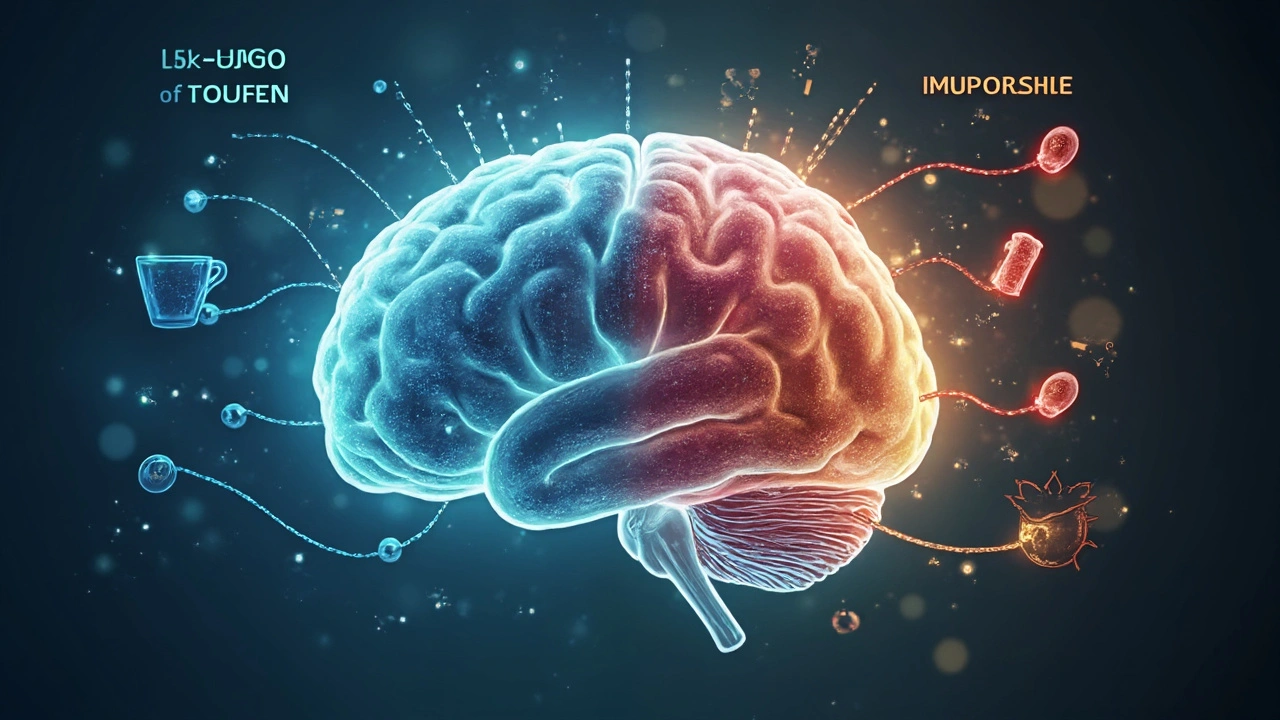Central Nervous System: Symptoms, Treatments & Safety
Your brain and spinal cord run almost everything you do — from thinking and mood to movement and balance. When something goes wrong in the central nervous system (CNS), the signs can be clear (a sudden seizure or weakness) or subtle (worsening sleep, mood changes, slow memory decline). Knowing common symptoms and how treatments work helps you take smarter steps fast.
Common CNS conditions and treatments
Mood disorders, migraines, movement problems, infections, and trauma all involve the CNS. For example, antidepressants like Lexapro (escitalopram) act on brain chemistry to lift mood and reduce anxiety. They often take weeks to work and can cause side effects such as sleep changes, nausea, or sexual side effects — so give them time and stay in touch with your prescriber.
Migraine medicines vary: some prevent attacks (like flunarizine in certain countries), others stop pain once it starts. If migraines come with weakness or numbness on one side, that can point to hemiplegic migraine and needs specialist care. Seizures, sudden vision loss, severe confusion, or new weakness are red flags — get urgent medical help.
Many CNS treatments interact with other drugs or medical conditions. For instance, some antibiotics, heart meds, or herbal supplements can change how a CNS drug works. Always tell your doctor and pharmacist everything you take — prescription, over-the-counter, and supplements.
Quick safety tips for CNS meds
Start low and go slow when a new CNS drug is prescribed. Keep a written list of symptoms and side effects for the first few weeks. If you feel worsening mood or new suicidal thoughts after starting or changing a dose of an antidepressant, contact your provider immediately.
Avoid alcohol and recreational drugs while on many CNS medications — they can make side effects worse or reduce effectiveness. Driving and operating machinery may be risky until you know how a drug affects you. Ask your prescriber about safe timing of doses and whether to avoid driving when you start treatment.
Simple habits protect your brain: regular sleep, daily movement, good hydration, and balanced meals help medications work better and lower symptom burden. Manage chronic conditions like high blood pressure, diabetes, and high cholesterol — they affect brain health over time.
Keep all follow-up appointments and necessary tests. Some CNS drugs require blood tests, dose checks, or monitoring for side effects. If a medicine isn’t helping or causes unacceptable side effects, talk about alternatives. There are often other options that may work better for you.
Got specific symptoms or questions about a CNS medication? Reach out to a healthcare professional who knows your history. Small changes early — like adjusting dose or swapping drugs — can make a big difference in how you feel and function.
Curious about how paracetamol and ibuprofen really work in your brain? This in-depth guide compares their unique mechanisms in the central nervous system, explaining how each tackles pain differently. Get a closer look at the science behind everyday painkillers—no fluff, just facts. You’ll also discover tips, everyday scenarios, and research-backed insights that make it easier to choose the right analgesic for your needs. Dive deep into what actually happens inside your head when you pop these common meds.

